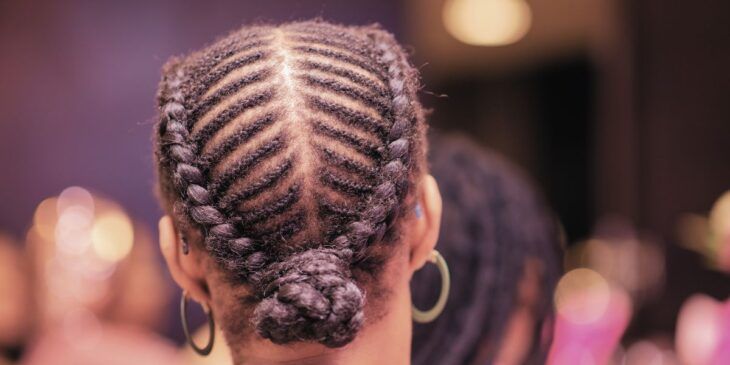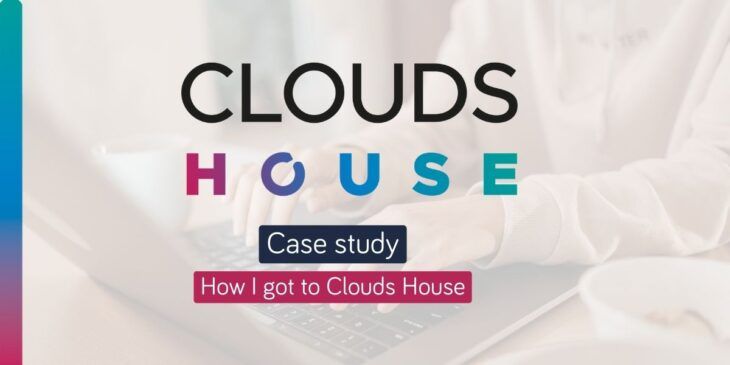Siobhan’s Story

By the time Siobhan was 19 her drinking was getting out of control. What had started off as social drinking just 3 years earlier had gone well beyond pubs and parties, into staying out later and later, drink-driving, taking cocaine and blacking out. Things escalated rapidly and Siobhan was arrested after crashing her car while drunk. “When that happened everyone said, ‘it’s time to stop drinking now’ and my response was ‘No! I’m 19, everybody else my age is at university and probably drinking more than me … it’s totally normal!’

But a seed was planted, and Siobhan recognised that her reluctance to stop drinking could actually be a sign that something was wrong. A few months later, she was admitted to residential treatment at Clouds House – mostly to keep her family off her back. “I just wasn’t ready. I didn’t engage and I ended up leaving early.”
In an attempt to get her life in order after this experience, Siobhan found a job doing shift work in the caring services, which she enjoyed a lot as it gave her a sense of purpose. But her drinking also really took off. “I would always pick up 2 bottles of wine on the way home, get back, drink myself to sleep, wake up, go back to work. A day off would always be spent just drinking.”
During this time Siobhan started a relationship with someone addicted to crack and heroin, and chaos ensued. “Living with him was very stressful. He overdosed several times when we were alone. I’d think he was dead and there were little old me trying to keep him alive. I was calling ambulances at all hours. It was horrendous.”
As it progressed, Siobhan still believed that she was drinking socially. “But by ‘socially,’ I mean I would go to the pub on my own and just talk to anyone. I would wait for somebody to come.” Her partner began to get calls from people who’d found her asleep in shop doorways or in other dangerous situations.
“I had gradually slipped into a life of out-of-control drinking – not knowing when to stop, not being able to stop … I started drinking in the morning before going to work – and as soon as I finished my shift, I’d start again. That carried on for about 3 years.”
When Siobhan’s relationship ended, she moved into a house share with 2 other girls, “I thought the end of the relationship meant I would be fine and that things would be under control. Living with nice people who didn’t really drink. But I just carried on. The recycling bins would be full of my wine bottles, and I remember being so embarrassed – but not enough to do anything about the drinking. Instead, my solution was to buy boxes of wine instead of bottles.”
“I was still working. Part of my job was to give people their medication, and I frightened myself. I had to double, triple, quadruple check what their medications said… thinking if I make a mistake and people found out I was drunk I would really be in trouble.”
Sill not thinking drink was the problem Siobhan got signed off from work – for anxiety and depression. “It sounds crazy now not really thinking I had a drinking problem, at the time I thought ‘I’m really stressed after my relationship, I probably just need a rest.’ And for 6 months, I just drank to oblivion every day, all day, totally bed-bound.”
Eventually, after a long visit from her mother during which things deteriorated even further, Siobhan agreed to go back into residential treatment. The plan was to do a week of detox at Clouds House and then transfer to a non-12 Step Treatment Centre. “I was so adamant about that,” Siobhan says. “I definitely knew best!”
So, I did a week’s detox at Clouds – where the nursing team there were incredible – and I got picked up to go to another treatment centre, but after one night I said ‘just take me back to Clouds, that’s where I want to be.’ I’d made such strong connections with everyone already and I knew that they really understood me and cared about me. They took me back immediately which was amazing. I went straight there and then I stayed for five more weeks.”
“I found Clouds so personal, so homely. I felt so safe there. That was hugely important to me because I was terrified. There was always such a great mix of people learning how to be a community, all with very different stories, but living together and sharing this common thread. I learned so much about addiction and about myself – that I needed to put the work in, or it was likely that things would get worse. I learned how to speak in groups, be a part of the community, to share what was really going on, to take responsibility and be accountable to my peers. Most importantly, I realised that I wasn’t the only one – and that gave me the ability to start changing.”
“I also learned how to have fun again – whether it was horoscopes, rounders, quizzes, music – I’d been so isolated before.”
But when Siobhan left Clouds after making so much progress, she didn’t have a stable home environment to return to. “I was on my way to stay with a friend, went to buy her some flowers, but instead I bought some little gin and tonics, downed them in the car, then went back in to get a bottle of wine. Pretty soon I started binge drinking savagely. Although I was really scared of going back to where I had been, it carried on for another whole year.”
“Eventually, I felt desperate enough to go back to AA, so I went to a local meeting and met someone who I’d been at Clouds with, and that gave me hope. I kept going to the meetings but relapsed 2 or 3 more times. I was still fighting it and thinking I knew best, not following the recommendation of doing 90 meetings in 90 days or getting a sponsor. I just wasn’t getting it. In the end it all came crashing down.”
“I was stuck in a B&B, sobering up, really struggling. I’d truly had enough. I didn’t know what to do. Then I remembered that when I left Clouds, they had offered me aftercare – but I had still known best and didn’t think I needed it. But I knew that I could just call them and say, ‘I really need help’ and something would be arranged. So, I did, and it was.”
“It was amazing… I went to aftercare weekly, sometimes twice weekly. I started in person and then coronavirus came, and everything went online.”
Siobhan moved into a sober house. “Lockdown video 12 step meetings had started on Zoom, and I absolutely hammered them. I woke up early, did a meeting in the morning, and everything revolved around that. Eventually, I got to 90 meetings in 90 days, and I couldn’t have been prouder because I’d never really completed anything, so it was a massive achievement.”
Siobhan’s aftercare included family counselling with her parents that enabled her to say difficult things – and also helped them understand more about addiction. “The sessions always ended with my counsellor letting my parents know that if they needed anything to get in contact with her. So, it was an open-ended thing, and I knew that they would get support if they needed it. Another tick for Clouds!”
“Since then, I’ve left the sober house, moved into a new home. I’m still hammering the meetings. Someone said to me ‘keep doing the meetings until you want to’ and that stuck with me. I’m working the steps, working my program, I’ve been able to give something back by doing the Clouds ex-peer share. I’ve just finished a year of aftercare, and my life today could not be more opposite to what it was. It is such a phenomenal feeling.”
About her relationship with Clouds House, Siobhan feels it’s a journey they’ve been on together. “The staff at Clouds were always there for me when I needed them, and I know they always will be. They didn’t judge me because I didn’t get it the first time, they just welcomed me back and cared for me. That was so important.”
“Now I’m able to give something back by doing the ex-peer share and things like this website story. I hope that reading this can affect just one person by helping them realise that there is always hope, no matter how many times you’ve tried and relapsed. Just keep trying and one day something will stick. Don’t give up.”
At Clouds House we believe that everybody can change – recovery is possible.